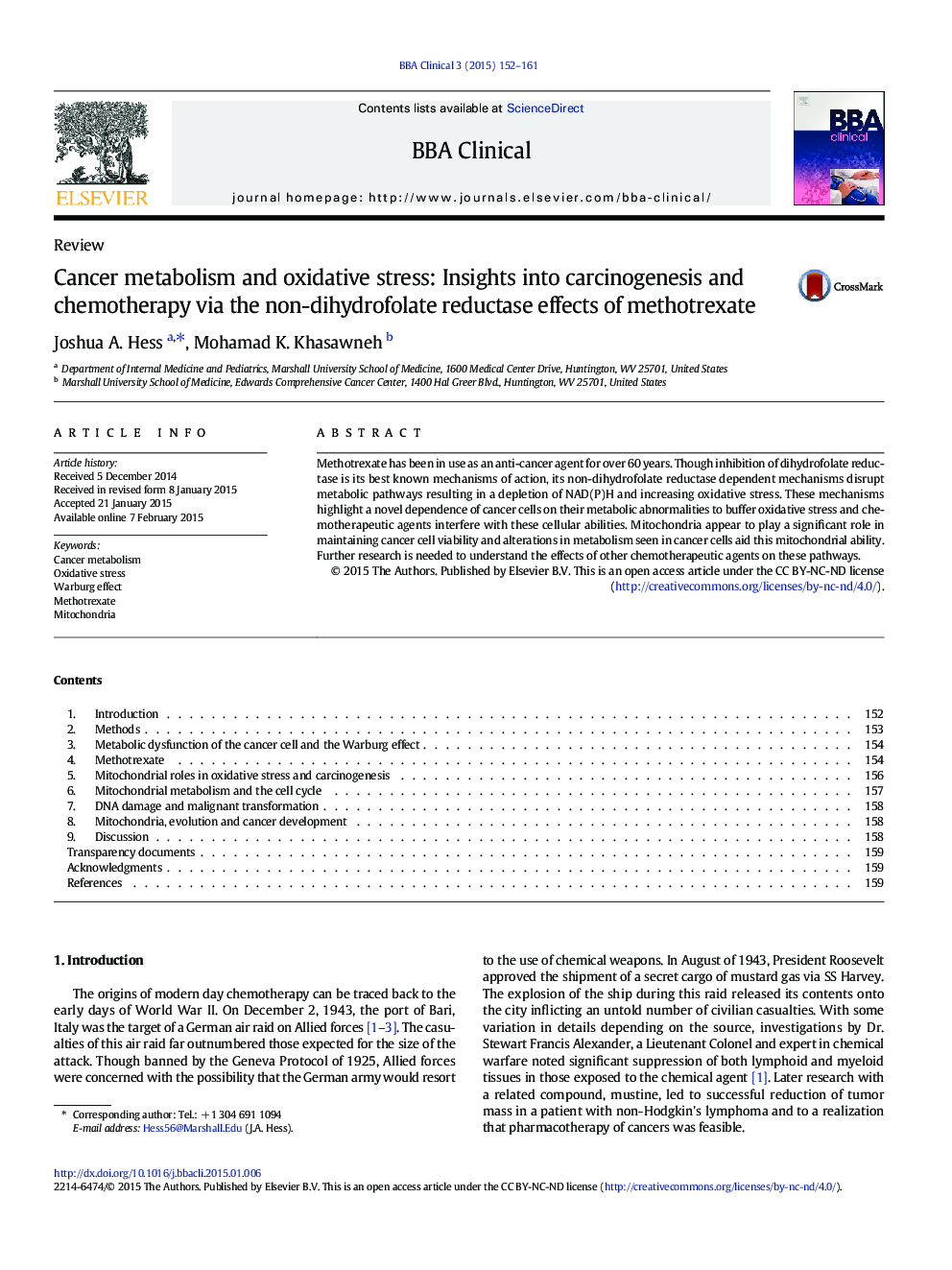| Article ID | Journal | Published Year | Pages | File Type |
|---|---|---|---|---|
| 2773110 | BBA Clinical | 2015 | 10 Pages |
•Methotrexate inhibits multiple enzymes beyond dihydrofolate reductase.•Mitochondria serve a critical role in buffering cellular oxidative stress.•Metabolic derangements seen in cancer fuel this mitochondrial rescue function.•Methotrexate toxicity occurs secondary to a handicapping of this buffering function.•Many chemotherapeutic agents appear to have mechanisms affecting these pathways.
Methotrexate has been in use as an anti-cancer agent for over 60 years. Though inhibition of dihydrofolate reductase is its best known mechanisms of action, its non-dihydrofolate reductase dependent mechanisms disrupt metabolic pathways resulting in a depletion of NAD(P)H and increasing oxidative stress. These mechanisms highlight a novel dependence of cancer cells on their metabolic abnormalities to buffer oxidative stress and chemotherapeutic agents interfere with these cellular abilities. Mitochondria appear to play a significant role in maintaining cancer cell viability and alterations in metabolism seen in cancer cells aid this mitochondrial ability. Further research is needed to understand the effects of other chemotherapeutic agents on these pathways.
